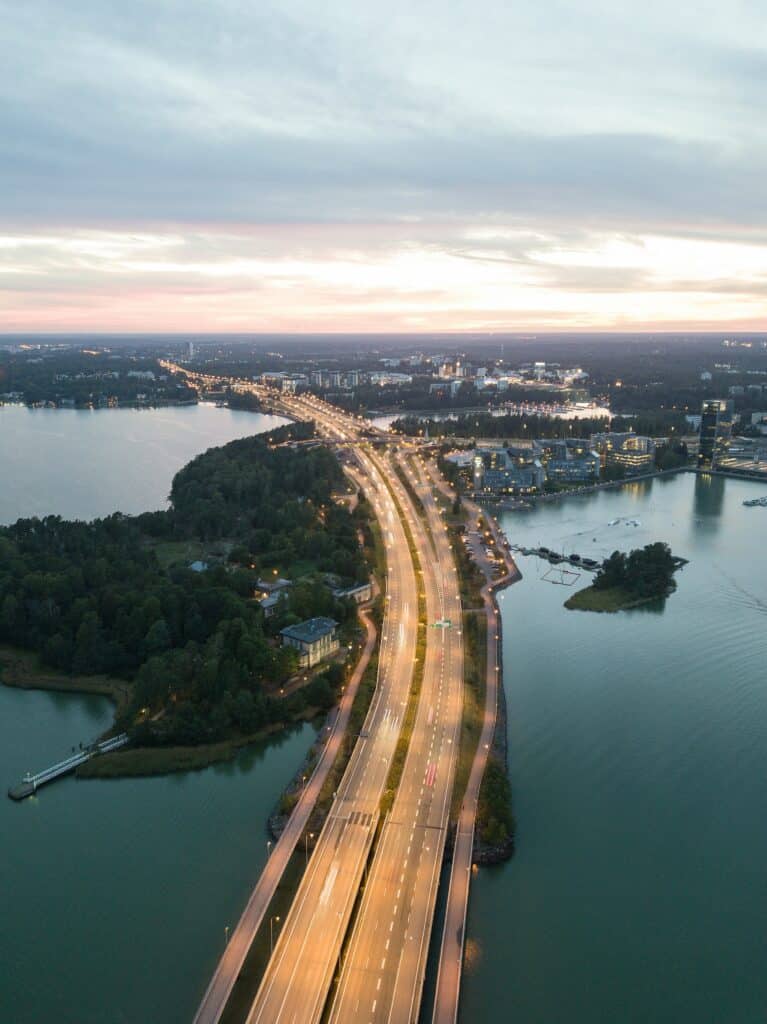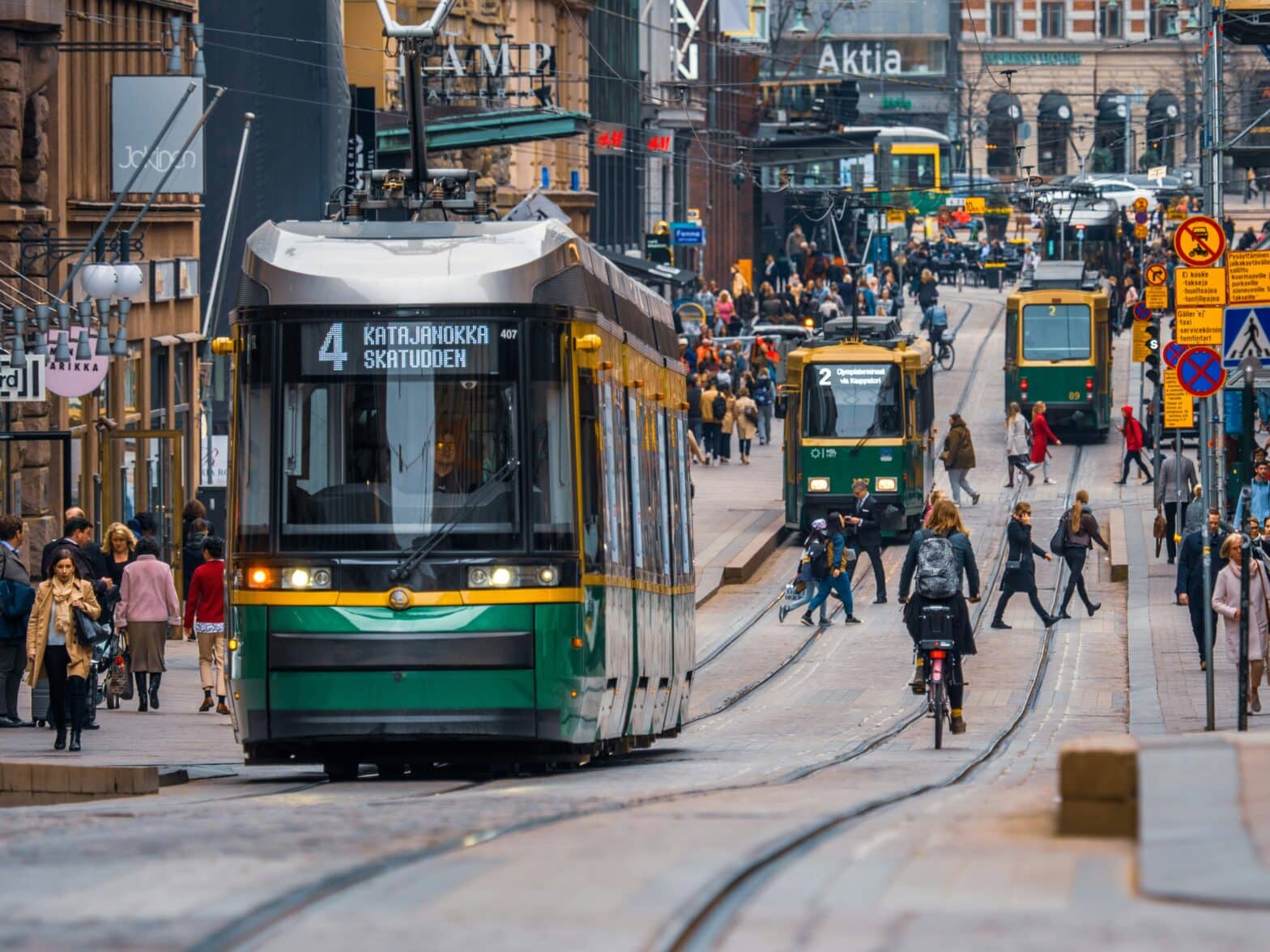What if happiness could be savoured in the steam of a sauna, plucked from the heart of a magical forest, or contemplated under a winter sky aglow with a thousand lights mirrored on the surface of a pristine lake? For the sixth year running, fascinating Finland has topped the list of the world’s happiest countries! And with good reason: the Land of a Thousand Lakes is home to endless open spaces, an ever-present wilderness, genuine hospitality and an excellent quality of life. From administrative formalities to everyday life, Foyer Global Health offers you the key to a successful move to this far northern clime as a family, couple or solo traveller!
Moving to Finland: the pros, the cons
The advantages
- It’s the happiest country in the world!
- A high quality of life
- A wide range of leisure and cultural activities
- Finland is one of the safest countries in the world
- Excellent public services (education, health, public transport, welfare, etc.)
- Abundant natural resources
- Many career opportunities for expats offering a better than average salary
- A family-friendly country
Disadvantages
- A relatively high cost of living, as in other northern European countries
- The climate (you will have to learn to live in the twilight or darkness in winter!)
- Finnish is quite a difficult language to learn
- High taxes
What kind of visa do you need to move to Finland?
EU and EEA nationals do not need a residence permit to move to Finland. However, if you are staying for more than three months, you must register with the Finnish immigration services to apply for a residence permit and have a reason for staying: work, study or family member residing in the country. Third-country nationals must apply for a residence permit. It is also possible to apply for permanent residence after four to seven years of residence. For more information on living in Finland, click here!
Where should you relocate in Finland?
Choosing the best place to live in Finland depends on your needs, your profile and your lifestyle.
Helsinki is a dynamic, cosmopolitan and sophisticated city with many professional opportunities and a wide range of activities to suit all tastes. Just outside the capital, Espoo will appeal to families with its quieter atmosphere and excellent infrastructure. Tampere, the country’s third largest city, is popular with students and nature lovers alike for its vibrant atmosphere and proximity to lakes and forests. In the north of Finland, Oulu is a dynamic university town offering a high quality of life and many work opportunities in the technology sector. Culture vultures in search of the picturesque will settle in Turku or Porvoo, while outdoor enthusiasts will opt for Rovaniemi, the capital of Finnish Lapland.

Working in Finland
Finland is full of job opportunities for expats, especially in the high-tech sector: mobile technology, electronics, cybersecurity, video games, health technology. It’s no surprise, as Finland is a pioneer in the field of telecommunications and high technology. The land of Nokia, Rovio, 5G and Linux work in this sector will boost your career. Finland is also attractive to expats working in the biotechnology, energy, health and well-being sectors.
Openness, equality, autonomy, trust, consensus and work-life balance are highly valued in Finnish companies, where there is very little vertical hierarchy. The small country of 5.5 million people is also often held up as a model of workplace flexibility: the Finnish government has passed a Working Hours Act (Työaikalaki), the amended version of which came into force in 2020. This law allows employees to organise their working time (40 hours per week) as they wish, in agreement with their management.
Knowledge of the Finnish language may be required for certain jobs and sectors, especially those involving interaction with the public. In most sectors where expats are employed, especially technology, English is sufficient.
Accommodation
In Finland’s major cities, scarce available accommodation and the language barrier can make it difficult for expats to find accommodation on their own. Ask your employer: some companies help their expat employees to find accommodation in the short or medium term. If this is not the case, it is best to use the services of an estate agent and/or consult the local council’s rental listings. In large towns and cities, the stock of rental properties is usually limited to unfurnished flats. For a 3-bedroom flat in the city centre, you should expect to pay around €1,317.66.
Useful links:
https://www.vuokraovi.com/?locale=en&locale=en
Healthcare in Finland
The Finnish healthcare system is universal and decentralised, providing high-quality health services to all residents, including expatriates and their families. When you arrive in Finland, you can apply to join the national health insurance system. You will be given a social security number and a Kela card, which entitles you to reimbursement of your medical expenses in the public sector and, to a lesser extent, in the private sector. Most expats, however, choose to take out global health insurance for the flexibility, freedom of choice and efficiency it offers in both the public and private sectors, not to mention service in English.
What you need to know:
- Finland has two official languages: Finnish and Swedish; bilingualism is an integral part of the Finnish identity.
- The euro is the national currency
- The sauna, found in almost every home, is a central feature part of the Finnish lifestyle
- The Finnish authorities offer free or low-cost Finnish language courses to immigrants and their families to help them integrate.
Top experiences once you’ve settled in:
- Explore Vanha Rauma, the largest historic wooden centre in Northern Europe, a truly open-air museum
- Explore the forests and valleys of Lapland and contemplate the Northern Lights
- Refresh yourself in the dry steam of a sauna in Helsinki, Tempere or perhaps Kuopio, for a more picturesque experience
- Sleep in an igloo in Rovaniemi
- Explore Helsinki, Finland’s fascinating capital, with its historical monuments and museums
- Enjoy the many music festivals (from metal to chamber music)
- Get lost in the natural labyrinth of the Great Lakes region
- Explore Karelia and its magnificent nature reserves on the Russian border on foot, skis or snowshoes
- Treat yourself to a wonderful seaside break in Hanko
